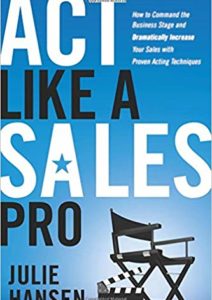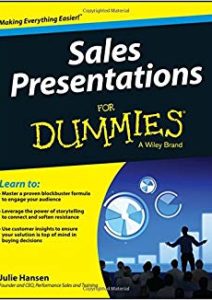There are lots of great reasons to use humor in your sales pitch. A funny story, joke, quote, or prop can engage your prospect, add welcome lightness to a heavy subject, and increase audience recall.
Yup, humor can be a great….when it works. And when it doesn’t? Few things will suck the confidence out of you faster than a joke or story that bombs, annoys or confuses your business audience.
Using humor in your pitch is not without risk, so be smart about exposing your funny bone by following these 9 tips:
- Be relevant. Humor for humor’s sake is rarely appreciated in business. Make sure there is some connection between your funny business and your customer’s business or the topic you’re speaking on. Otherwise you risk annoying some members of your audience who may feel like their time is being wasted.
- Know your audience. A salesperson told a joke about millennials to a group of HR executives. Unfortunately, one of those executives was a mature looking millennial and she did not find it amusing. The salesperson never got a second chance. Make sure you’re not inadvertently offending someone in the audience, or the company. If you don’t know a lot about your audience, stick with safe subjects.
- Limit the sarcasm. Some people love sarcasm, others find it negative or grating. A best practice is to use it sparingly if you don’t have a good read on your audience. You can test this out once, and if it falls flat, cut out any other planned attempts at sarcasm.
- Nail your punch line. Don’t you hate it when someone gets all the way to the end of a joke and botches the punch line? It doesn’t instill much confidence, does it? Nerves can do funny things to presenters (no pun intended) so take your humor as seriously as the rest of your pitch. Practice your story or joke until you have it down cold.
- Avoid controversial subjects. Of course, there are the obvious off-limit topics: Politics, religion, gun control, marijuana legalization, etc. But don’t let the subtle ones slip by. Not everyone believes in climate change (I know, right?!) and some areas of the country take their sports teams very, very seriously (Hello, New England?!) If you’re in doubt about whether your subject is controversial or not, leave it out. Instead, use the one topic you can always safely make fun of: Yourself!
- Deliver it with confidence. If you can’t commit to your joke, story or prop 100%, it’s better not to do it at all. Your audience will instinctively pick up on your discomfort and start to feel uncomfortable themselves.
- Take a beat. Often presenters say a joke or story didn’t work when they simply didn’t allow their audience enough time to react! Professional comedians purposefully pause for a few beats before launching into their next joke to let the audience react. Remember, your prospect doesn’t know the funny is coming and will need a few seconds to digest it.
- Do a test. Even if you can check off all these tips, it’s smart to run your material by people who will be in your audience – or are representative of your audience. Don’t know your audience and/or what tickles their funny bone? Proceed with caution.
- Let your audience decide. Don’t tell your audience something is funny. Adding “This is funny” before you say something begs the thought, “I’ll be the judge of that.” Humor stands on its own; you shouldn’t have to announce its arrival.
So by all means, use humor in your sales pitch – just use these tips to make sure you’re not on the receiving end of a rotten tomato! And by the way, if humor just isn’t your forte’, don’t worry. There are many other ways to engage your audience, in fact you can check out a few here.
Pipeliner CRM empowers salespeople to say the right things at the right time.Get your free trial of Pipeliner CRM now.













Comments (1)
Sales becomes a lot less intimidating over time and you’ll get used to the rejection. I very rarely encounter angry people who slam doors in my face. If I ever do meet these people I know they are upset about something else and simply do not know me. If they could read my mind they would realize I mean well.